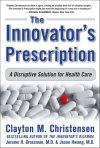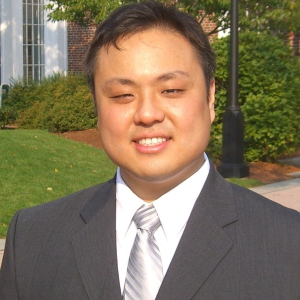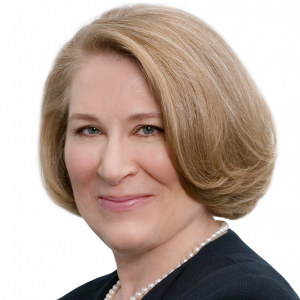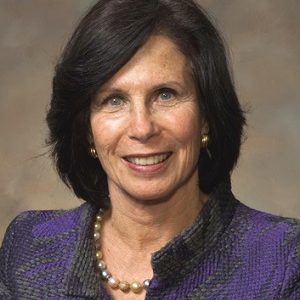Authority on Innovative Health Care Reform and Co-Author of “The Innovator’s Prescription: A Disruptive Solution for Health Care”
Jason Hwang, M.D., M.B.A. is an internal medicine physician with deep expertise in health care innovation, both as a thought leader and as an entrepreneur.
Healthcare
Together with Professor Clayton Christensen of Harvard Business School and the late Jerome Grossman of Harvard Kennedy School of Government, Dr. Hwang co-authored The Innovator’s Prescription: A Disruptive Solution for Health Care, the American College of Healthcare Executives 2010 Book of the Year and recipient of the 2011 Health Service Journal Circle Prize for Inspiring Innovation. He continues to write and speak frequently about innovations in health care that lower the cost of care, improve its quality, and elevate the patient and physician experience.
Icebreaker Health
Dr. Hwang was previously co-founder and chief medical officer of Icebreaker Health (also known as Lemonaid Health), a next-generation telemedicine company focused on delivering highly scalable primary care services direct to consumer via smartphone and web applications. Dr. Hwang helped guide the company through its early stage of growth to a staff of 20 employees, including 6 full-time physicians; customer volume of 3,500 patient visits per month; a partnership with a national health care provider; and a Series A valuation of $25M.
Innovation
Prior to that, Dr. Hwang co-founded and was Executive Director of Healthcare at Innosight Institute (now renamed the Clayton Christensen Institute for Disruptive Innovation), a non-profit social innovation think tank. Dr. Hwang engaged with stakeholders across the health care landscape in order to research and promote disruptive innovations in the sector, while producing multiple academic papers and mass media articles for outlets including Health Affairs, CNN, CNBC, BusinessWeek, Forbes, Fortune, Wall Street Journal, and Harvard Business Review; organizing several workshops and conferences; and speaking at numerous events including TEDMED, the Institute of Medicine, and the U.S. Department of Health and Human Services.
Affiliations
Dr. Hwang has been an advisory board member at The Commonwealth Fund, Moffitt Cancer Center, and Oklahoma State University. He has consulted on or assisted with projects for numerous organizations and companies, including the XPRIZE Foundation, Robert Wood Johnson Foundation, California Health Care Foundation, Ashoka Foundation, IBM Watson Research Center, Pfizer, and Medtronic. He is a founding member of the Editorial Board for Innovation and Entrepreneurship in Health.
Education
Dr. Hwang taught as chief resident and clinical instructor at the University of California, Irvine, where he received multiple recognitions for his clinical work. He has also served as a clinician with the Southern California Kaiser Permanente Medical Group and the Department of Veterans Affairs Medical Center in Long Beach, California. Dr. Hwang received his B.S. and M.D. from the University of Michigan and his M.B.A. from Harvard Business School.
The Innovator’s Prescription: How Disruptive Innovation Will Transform Health Care
In the absence of the ability to precisely define a disease, the care of patients is best undertaken by highly skilled professionals, whose intuition is based on deep experience. This describes the history of health care, and we call this the practice of intuitive medicine. Molecular biology holds the promise of transforming medical practice into a new phase that we call precision medicine. It promises to dramatically reduce cost and increase the predictable effectiveness of therapy.
Disrupting U.S. Health Care
When we think of “quality” health care, we generally assume that more expertise is always preferred -- doctors must be better than nurses, specialists must be better than primary care doctors, and hospitals and clinics must be better than virtual interactions. This mentality, in part, has left us with a health care system that is unaffordable, inconvenient and largely broken. But if we were to apply the principles of disruptive innovation to our collapsing health care system—by using advances in technology to help nurses and primary care physicians to do more sophisticated work—a costly, hard-to-schedule trip to the doctor may become increasingly rare. Disruptive innovations like direct-to-consumer diagnostics, patient-controlled electronic health records, telemedicine, and hospital-at-home models of care have the potential to create transformative change in the health care industry, argues physician Jason Hwang. Such models of care also have the potential to be superior options with distinct advantages for paving the way toward more accessible, affordable and quality health care.
Full Potential: Why and How Retail Clinics Must Disrupt… Again
Anointed as the disruptive model for care delivery when they first entered the marketplace, retail clinics have fallen significantly short of both their promise and potential. In fact, says Jason Hwang, they surprisingly did not follow the path of true disruption. Most disruptions start by serving the low end of consumers, but retail clinics tend to attract people who already have insurance and access to care. The retail clinic model has become one of convenience rather than one of need, missing an important opportunity to serve the poor and underinsured. To thrive and move beyond their current plateau, retail clinics must figure out how to self-disrupt, says Hwang – and he believes a combination of technology and nurses may be a big part of the solution. He discusses his views on how retails clinics can capitalize on mobile health technology and rely more on the expertise of nurses to further push the boundaries of where and to whom retail clinics deliver care, expanding their menu of services while providing quality care to those who need it most.
Reinventing the Business Models of Hospitals and Physician Practices
When health care professionals speak of reforming health care, they often cite solutions that merely preserve or reinforce the existing model of care delivery, such as tort reform, new payment codes and an expanded pool of doctors. But physician Jason Hwang argues that health care reform starts with changing its longstanding business model, an antiquated one-size-fits-all delivery system that struggles to do everything for everyone. For true health care reform, Hwang says, we need to deploy distinct business models that focus on different aspects of care. Under a “solution shop” model, care is organized around intuitive diagnostic activities and complex, multidisciplinary cases. In contrast, a "value-adding process" business model is organized around well-established and highly-predictable routines, such as joint replacement or endoscopy, and the entire business - even the facilities, training, and pricing - revolve around performing that one procedure perfectly time after time. By reinventing the traditional health care business model, says Hwang, we will no longer have to rely on a system that wants to be all things to all people.
Will Smartphones Replace Your Doctor? The Impact of Digital Health
Our population is living longer. There continues to be a shortage of nurses and primary care doctors. Provisions of the Affordable Care Act -- guaranteed issue and mandated coverage of many preventative services – have taken effect. The demand for affordable, quality health care is growing, and there is no way to fulfill it through existing models of care where every problem requires you to see a doctor, in person. Jason Hwang believes highly scalable digital health technologies are poised to vastly improve health care – for everyone. Drawing from experiences with his own telehealth start-up PolkaDoc, as well as his work with the X-PRIZE Foundation, Hwang talks about technology’s sophisticated yet affordable solutions that already exist – from ultrasounds and EKGs to diagnosing of ear infections or rashes, all via smartphones – and discusses the potential that simple digital innovations like text messaging, avatars and apps have for helping patients get better care, earlier and more efficiently. The value of digital health to transform health care is tremendous.
All Jason Hwang Books

The Innovator’s Prescription: A Disruptive Solution for Health Care
Purchase Book"We are very grateful for Jason’s contribution to our ‘Connect for Impact’ conference. He delivered an inspiring, thoughtful and tailor-made keynote which was highly appreciated by our guests. Besides that, Jason was also available for private conversations, reflecting on ideas, giving comments and advice!"
- | Noaber Foundation
"Your presentation on Innovation in Healthcare Service Delivery was exceptionally well received. You truly connected with our members who seek entrepreneurial leadership and are eager to advance behavioral healthcare "back home" and industry-wide. Thank you so much for an excellent presentation."
- | MHCA
"Jason is a rock star! We were so pleased with his presentation he set the tone for the rest of the conference. He is also one of the nicest people I've ever met."
- | University of Miami





